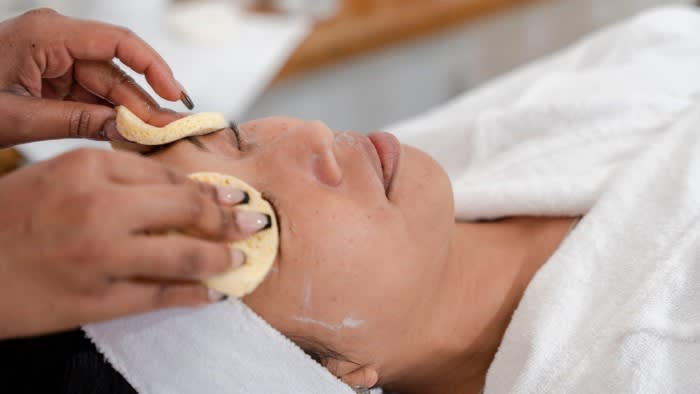Unlock the Editor’s Digest for free
Roula Khalaf, Editor of the FT, selects her favourite stories in this weekly newsletter.
Consumers looking to treat themselves despite the cost of living pressures helped boost the UK’s beauty sector last year.
The “lipstick effect” — where consumers spend money on small luxuries to make themselves feel better during tough economic times — was behind an 11 per cent rise in the sector’s contribution to the UK economy in 2023, a report from the British Beauty Council shows.
The £27bn contribution was up by 2.9 per cent once inflation was accounted for, according to the figures compiled by Oxford Economics.
The beauty sector “has always been quite well known for being reasonably recession-proof”, said Millie Kendall, founder and chief executive of the British Beauty Council, which represents the industry.
“It was Leonard Lauder who coined ‘the lipstick index’ . . . When the chips are down, people would want something that would make them feel good and so there’s a reasonably low entry price point to beauty.”
She said the industry had now rebounded from the supply-chain challenges of recent years caused by the pandemic, Russia’s war in Ukraine and Britain’s departure from the EU.
Separate figures from data company Mintel show that cost of living pressures have fuelled more savvy shopping for personal care items, especially soap, bath and shower products. But premium-priced fragrances benefited as people splashed on affordable indulgences.
Prestige beauty, such as high-end cosmetics and treatments, also sold well. Make-up sales increased compared with the previous year, when the lingering effects of the pandemic meant fewer people commuted into the office and there was less need for appearance-related products.
There have been concerns that slowing US beauty sales, with higher earners pulling back spending as they feel the economic pinch, would also impact the UK sector.
But Mintel forecast that falling inflation levels and renewed spending on holidays and going out indicated the sector would continue to grow.
UK consumer spending on beauty and personal care was up 6 per cent year on year to an estimated £11.3bn in 2023, it said, partly because of price rises. It was expected to reach £12.6bn in 2028, Mintel forecast.
Nevertheless, the British Beauty Council said that growth would begin to slow this year, with the sector climbing 3 per cent, or just 1 per cent accounting for inflation.
In 2023, the UK sector made a direct contribution to gross domestic product of £13.5bn, the report said, with the industry’s activities supporting an additional £13.6bn through its supply chain and employee spending, it added.


